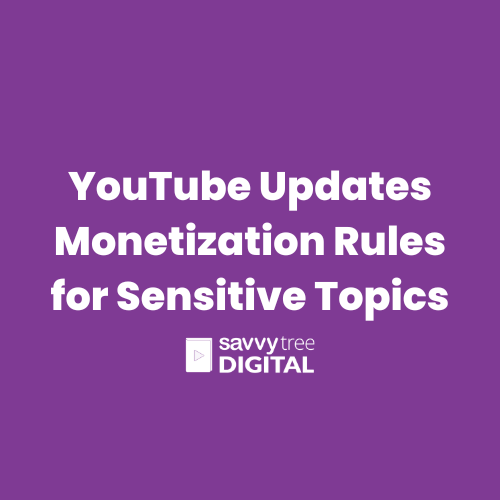YouTube has updated its monetization rules to give creators more leeway on certain sensitive topics. This means that creators will now be able to monetize a broader range of videos, even if they touch on sensitive subjects.
The change comes after much confusion and controversy surrounding YouTube’s advertiser-friendly content guidelines, which have been criticized for being too restrictive. In the past, creators have lost revenue when their videos have been demonetized for violating these guidelines, even if the content was not harmful or offensive.

The new rules will allow creators to monetize videos that discuss sensitive topics without going into graphic detail. This will allow creators to share important information and perspectives on a wider range of issues, while still being able to earn money from their work.
In the past, YouTube’s monetization rules were too restrictive and creators were penalised for discussing sensitive topics, even if their content was helpful and beneficial. The new rules recognize that these topics can be important and informative for viewers, and that creators should be able to earn money from their work.
YouTube is also moving to further restrict monetization of content that covers eating disorders. This is in line with YouTube’s broader Community Guidelines, which prohibit content that promotes or glorifies eating disorders.
The new rules are based on guidelines developed by the National Eating Disorder Association (NEDA) and other experts. The rules prohibit videos that show or describe disordered eating behaviours, such as purging after eating or severely restricting calories. The rules also prohibit videos that promote weight-based bullying.
The new rules will make it easier for creators to share helpful content about eating disorders, such as videos about recovery or providing educational information. The rules will also help to protect viewers from potentially harmful content.
Advertisers should be aware of the new rules and consider how they may impact their ad placement. Advertisers should avoid placing ads on videos that promote or glorify eating disorders.

